India’s Foremost Female Crematorium Manager Is Breaking a Lot of Taboos
Praveena Solomon has befriended skeptical gravediggers and faced down claims she will become possessed.
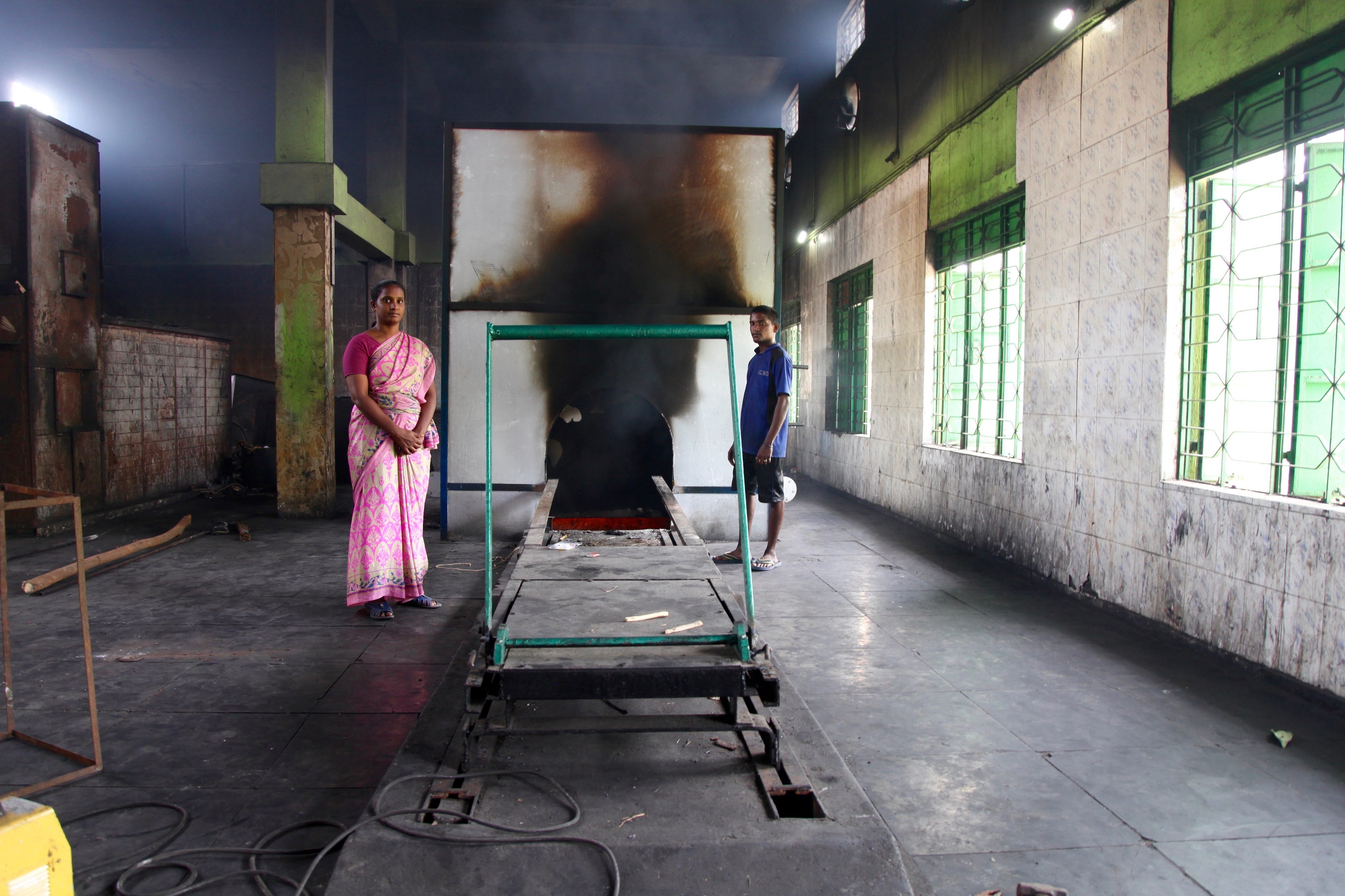
In her first months at the Velankadu Gas Fire Burial Ground, a crematorium in Chennai, Praveena Solomon thought she could hear ghosts. There was once a sound of someone rushing about in the empty yard outside her office, which, upon inspection, turned out to be dry leaves. Another day, a small closet mounted on the wall fell to the ground with a startling crash.
“It is written in the Bible that ghosts exist, but I don’t know whether to believe it,” Solomon, the crematorium manager, says one day in early February. “I haven’t seen one.”
Ghosts are Solomon’s lowest priority at the moment. The 34-year-old is part of a remarkable social experiment: the Velankadu crematorium is among the first in India to be run by a woman. By accepting the job, Solomon has unwittingly joined a cadre of Indian women who are entering spaces from which they have traditionally been excluded.

The new wave of feminism follows the brutal gang rape of a young woman in 2012 in New Delhi that horrified the nation. In the past year, Muslim women entered the Thazhathangady Juma Mosque in Kerala, which had barred from for 1,000 years; Hindu women entered ancient temples that had ostracized them; they reclaimed public spaces and loitered nonchalantly in the male gaze.
But a burial ground is unlike a temple, a mosque, or a dodgy bus stop. Even men try to avoid Hindu crematoriums, which are considered an abode for troubled souls en route to their next lives. Almost all Hindus—except children and the enlightened—are cremated so the soul can relinquish its attachment to the body and move on. Women are thought to be particularly susceptible to possession by the displaced spirits.
Velankadu is at the northwest fringe of Chennai, a conservative city of 4.2-million in South India. It is discreetly set back from the road and marked by funeral notices pasted on a gatepost. A cemented pathway leads visitors inside, past murals of a decapitated leopard, a skeleton speeding on a motorbike and a pair of angel wings. To the right is an overgrown burial yard; to the left, a children’s graveyard and three abandoned, soot-covered chambers where bodies were once cremated manually. Further down is the main building, where Solomon sits behind a table in a tiny office situated below a cavernous cremation chamber.
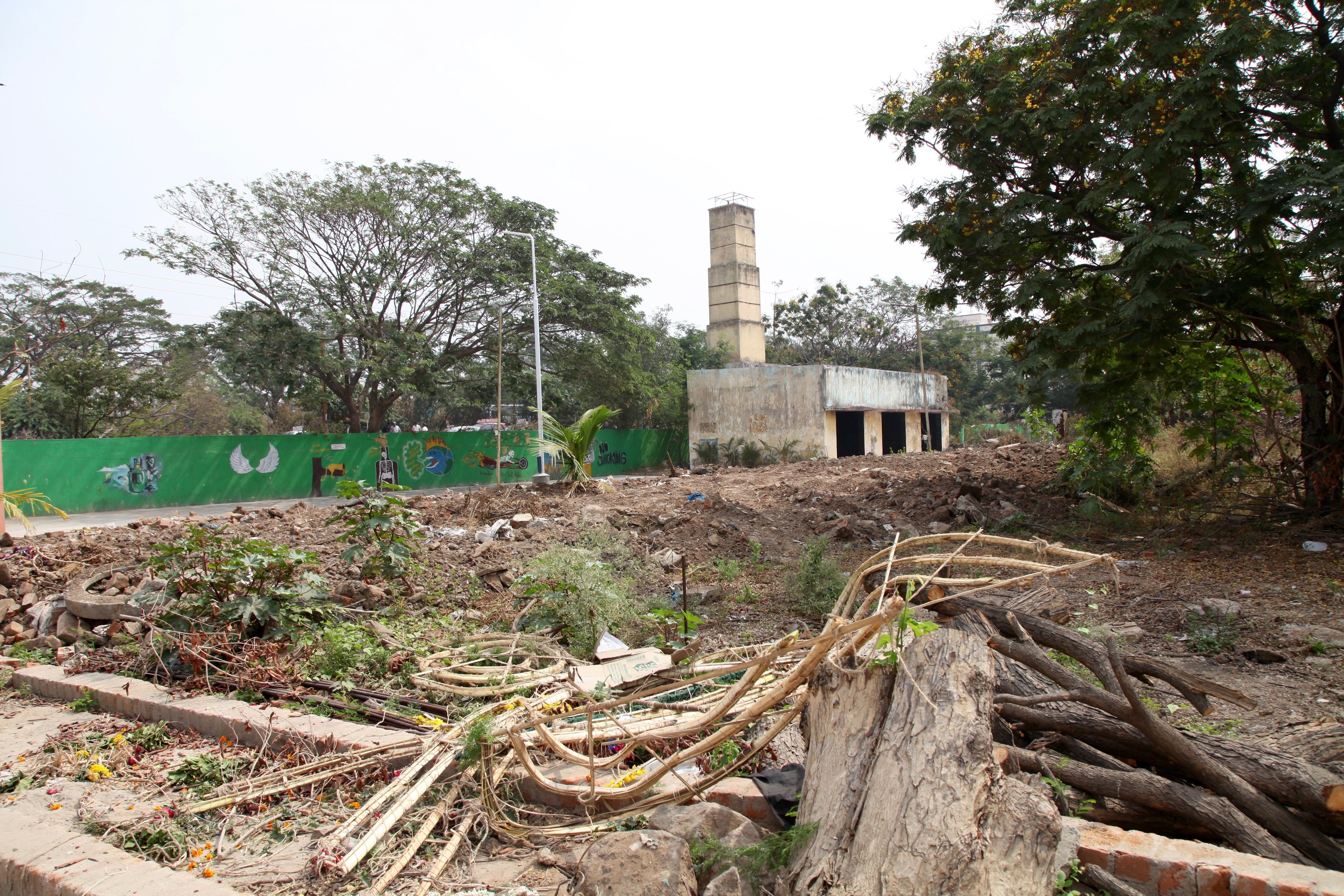
Solomon’s fortitude comes from decades working tough jobs in some of Chennai’s seediest locales. Previously, she educated sex workers on HIV/AIDS prevention for the non-profit Indian Community Welfare Organization (ICWO).
She would visit crowded bus stops that are influx points for travelers and truck drivers and find women wearing crepe saris, long fingernails and makeup. She would chat with them to confirm their occupation and take them to nearby motels where she would remove from her handbag an anatomical model of a penis and condoms and help the women practice. Once, police raided the motel during a session. After Solomon had convinced the chief constable that she was not a sex worker, he said in a pitying voice, “What kind of job is this, madam?”
Prior to 2014, government-run crematoriums in Chennai were badly mismanaged, says A.J. Hariharan, the founder of ICWO. An official at the city health department decided on reform and asked ICWO take over the management of Velankadu as a pilot.
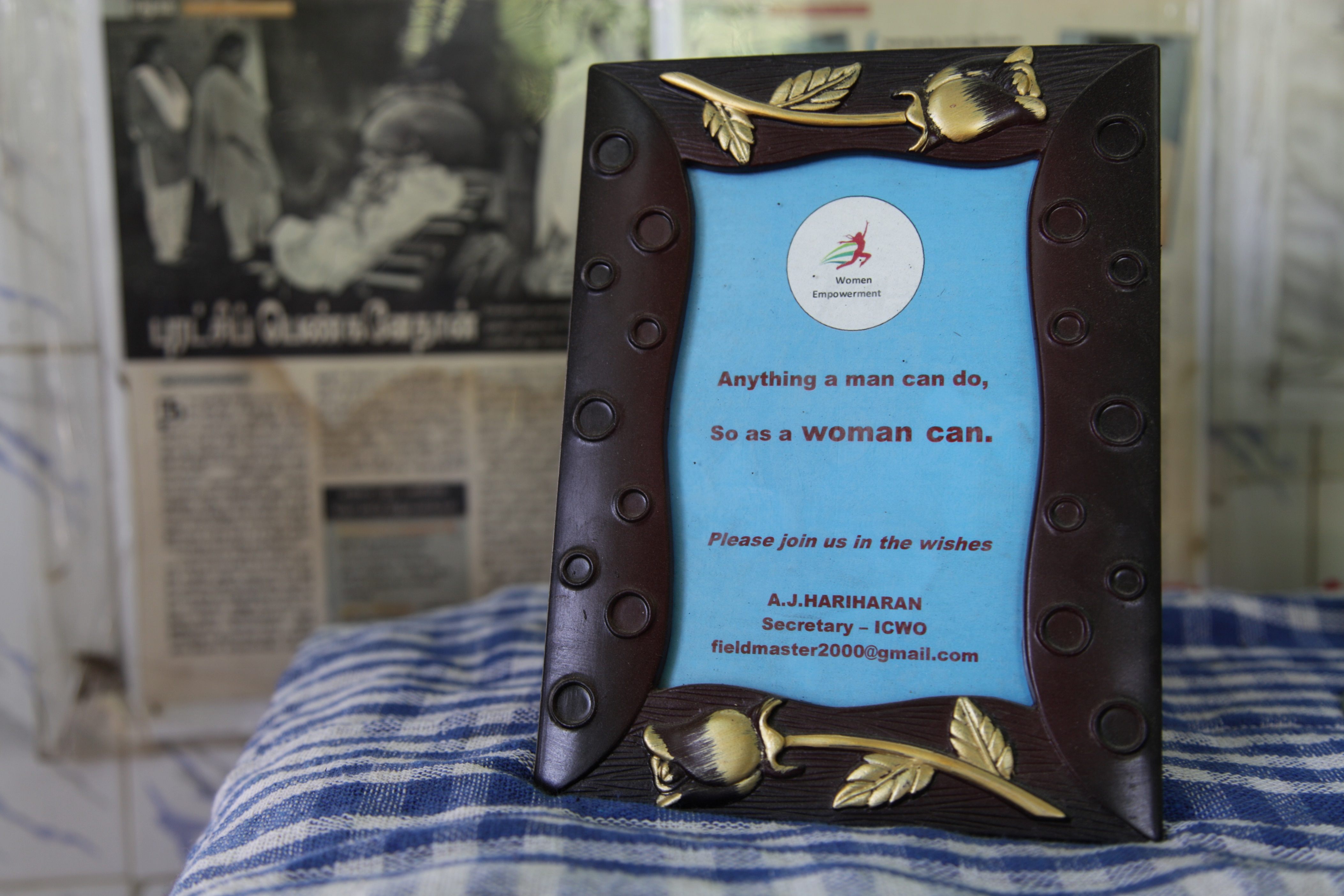
According to ancient Hindu scriptures, a person who arranges funerals earns as much merit for the afterlife as an ancient King performing a ritual sacrifice to the Gods. Hariharan saw a way to earn merit in this life and spark social change by having a woman run the operation. At the next meeting, Hariharan pitched the idea to his female field workers and Solomon volunteered.
A group of men with puffy faces and reddened eyes loiter at Velankadu’s entrance. They are “Vettiyans,” graveyard workers whose ancestral job is tending to the dead. Until a decade ago, they manually cremated bodies on wooden pyres and stoked the fires for up to 24 hours to ensure a complete burn. Given the rigors of the job, many turned to alcohol. Vettiyans today have a reputation as alcoholic wards-of-the-dead who might be possessed. In public, they are usually avoided and, if not, they are greeted with, “Who died?”
Some Vettiyans were hostile to Solomon at the beginning as they sensed change they could not control. Prior to her arrival, a few Vettiyans and graveyard managers had demanded bribes for cremation, a service that is supposed to be free of charge.
Solomon set ground rules for the Vettiyans: They could charge for organizing a funeral, but not for the cremation itself, which she would handle.
The men agreed to the terms once they realized she would not interfere with their core businesses of funeral organization. Vettiyans are highly skilled at arranging the final moments of the dead. They pose the body in either a seated or prone posture as dictated by custom, decorate it with flowers and transport it to the crematorium on a cane-and-bamboo stretcher, accompanied by drumming and singing of ancient dirges. It is said the lyrics and melody can move the most stoic offspring to tears. The deceased’s sons perform the final rites before the body is pushed into the furnace. Solomon oversees that final step.
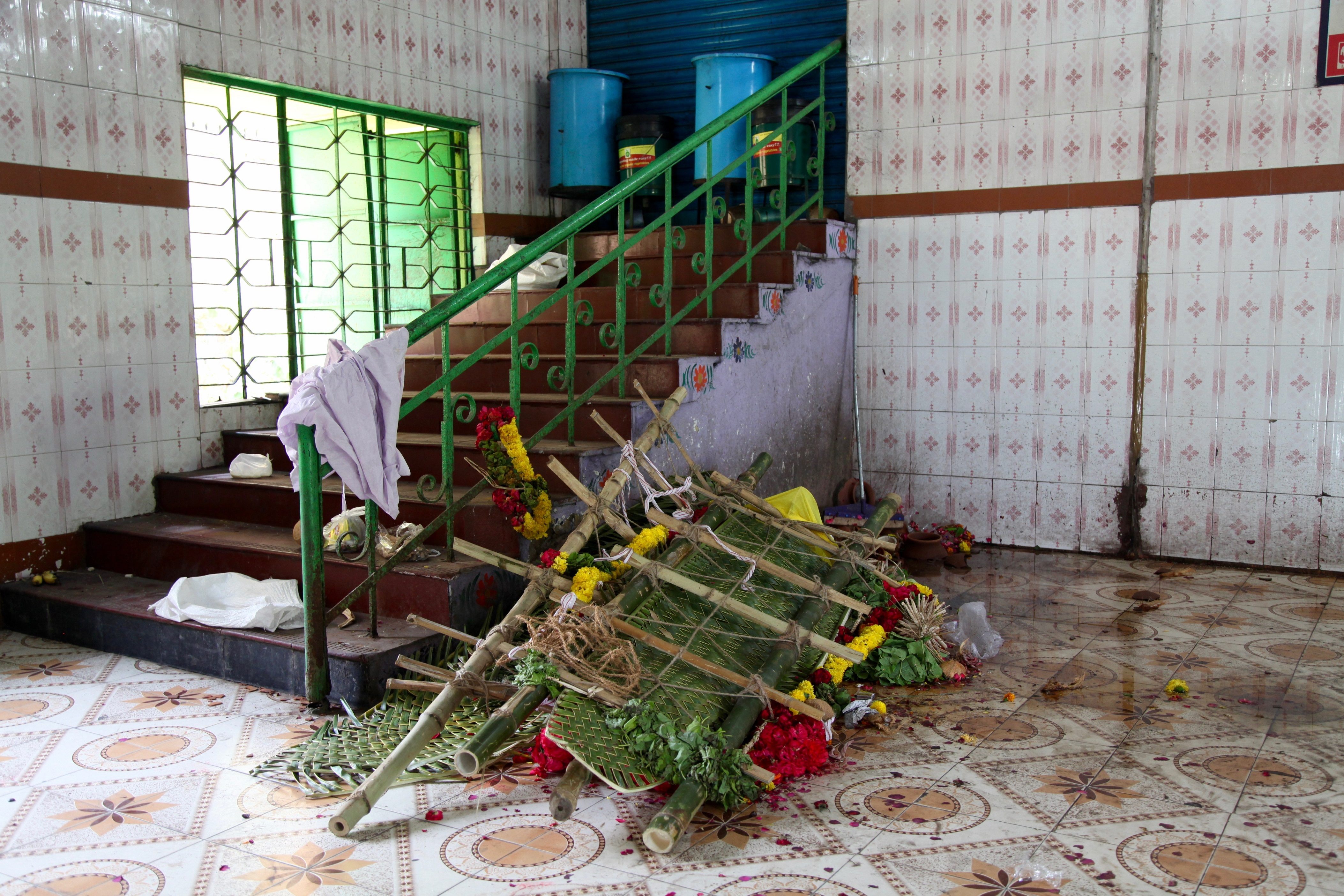
“We do all the rituals, but only the educated can fill the paperwork and that is the job that she is doing,” says Rajesh K, a Vettiyan. “There is no problem because of her.”
In the three years since Solomon took the job, the crematorium has become less ominous. Pots filled with red and pink flowers dot the campus. There are bright yellow benches on the walkway, newly planted bamboo trees, and three small fish puddles.
Accompanied by her 28-year-old assistant and protégé, Divya Raju, Solomon returns to the office, where the third cremation is set for 3:00 p.m., but the body—Solomon calls it an “accident case”—is late. A balding man, a friend of the deceased’s family, walks in and gives the backstory. A 21-year-old youth riding a moped inexplicably fainted, fell off and hit his head. He died on the spot. His friend, who was riding pillion, escaped with a slight leg injury. The boy was brilliant and was to go to the United States next month for graduate school, the man says.
The deceased’s brother walks in with a nervous energy, like he could jump out of his skin. Solomon quietly guides him through the paperwork.
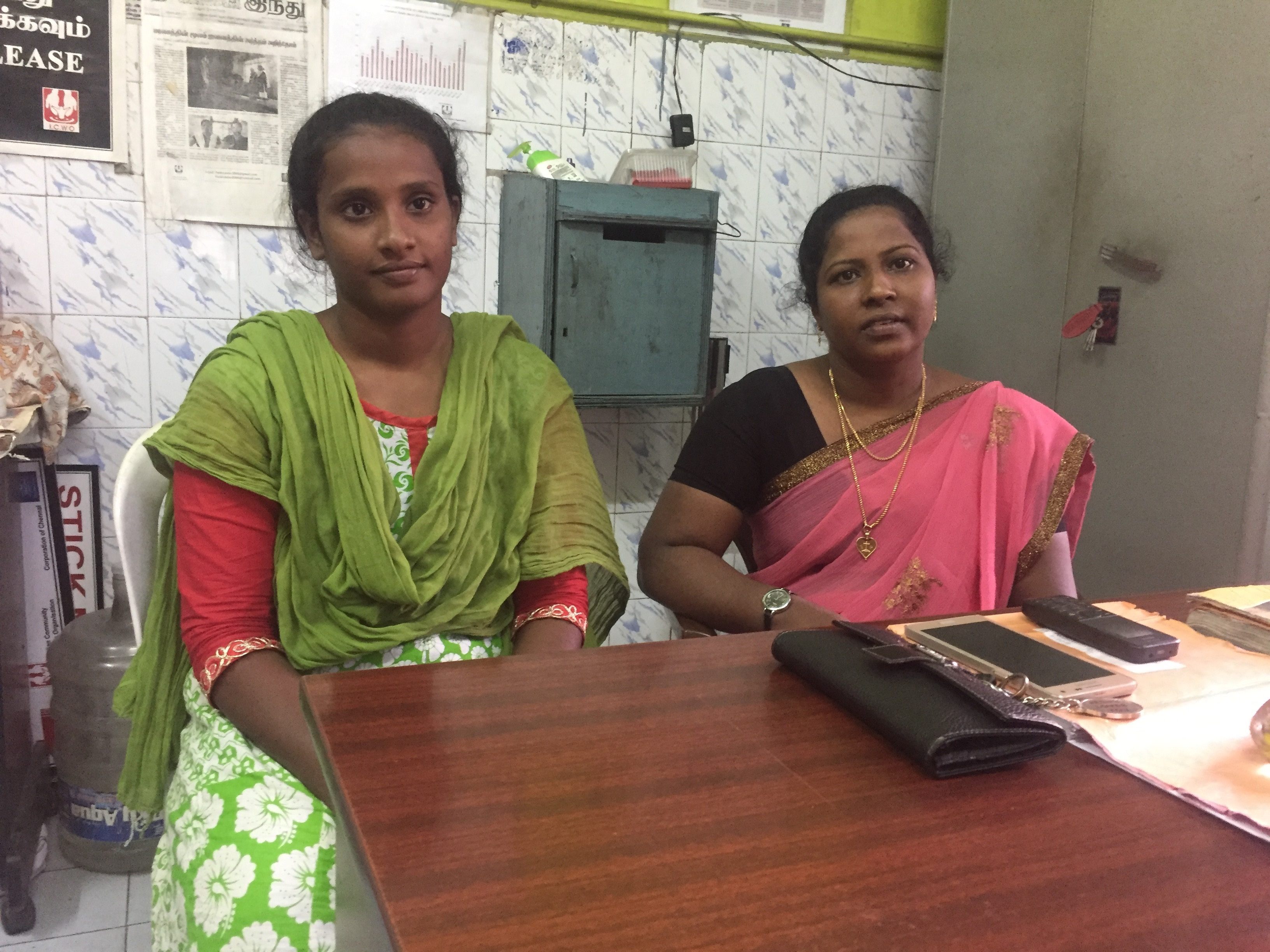
She finds handling the grief of the living the hardest part of her job. She cannot easily forget such sudden-death cases. On New Year’s Day, she cremated a young mother and her newborn infant. She also remembers a young man who died in a railway accident. It seemed like his entire village descended on Velankadu that day for the funeral. His pregnant wife and 200 other women beat their chests and wailed, Solomon recalls.
“It made me feel strange to hear so many women crying at once,” she says.
A fleck of charcoal floats onto the table.
Three weeks later, Solomon gets into a moped accident herself and is admitted to the hospital with a head injury. During her fortnight-long absence, Velankadu appears dismal. Some Vettiyans lounge under a Copper Pod tree. There is a dead rat on the walkway that no one has cleared. The bamboo trees are yellowing in the blistering heat without adequate watering by the gardener.
A middle-aged man is waiting to collect the ashes of a deceased relative. He observes Divya Raju, who is filling in for Solomon, and opines that women are not allowed in crematoriums for good reasons. According to Hindu custom, the soul, deprived of the body, remains on Earth for 10 days after death. The most troubled of these spirits are more attracted to women than men because they menstruate, he says.
“These are places where ghosts roam,” he says. “I know, because I’ve seen them.”
When he was a young boy, his sister was briefly possessed and underwent an exorcism, he says. A priest sat her sat in the middle of a passageway in their house and recited incantations. She swayed and banged her head against a wall until her forehead bled. Then she fell limp as the ghost left her, the man recalls.
“Kids these days don’t believe it, but ghosts are real,” he tells Raju. “I’ve seen them. You should not be here.”
Raju smiles, nods and walks back to her office.










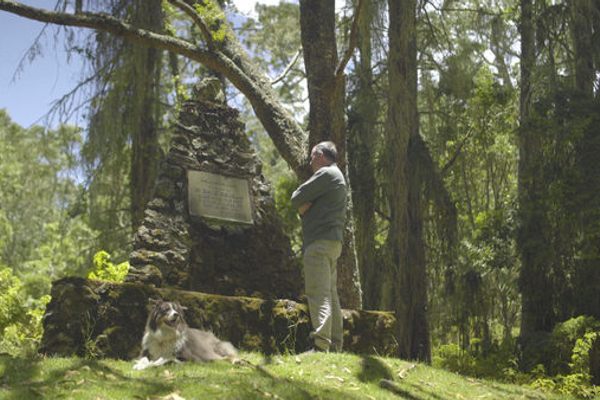




Follow us on Twitter to get the latest on the world's hidden wonders.
Like us on Facebook to get the latest on the world's hidden wonders.
Follow us on Twitter Like us on Facebook